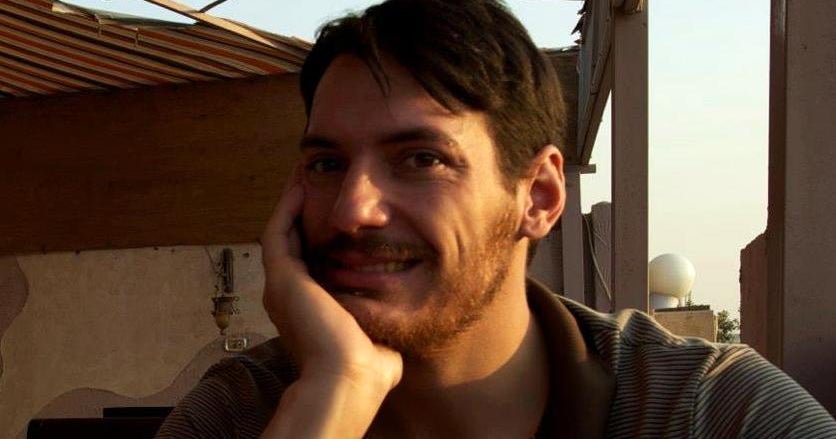CBS News
Latest news on Georgia voting after judge weighs in on new rule

Watch CBS News
Be the first to know
Get browser notifications for breaking news, live events, and exclusive reporting.
CBS News
Looking for a home in 2025? Check out these 10 housing hotspots.

Although 2024 is winding down, the U.S. housing crisis lives on. But even as steep home prices and elevated mortgage rates sideline many would-be homebuyers, some real estate markets around the country continue to attract buyers.
The National Association of Realtors (NAR) this month released a list of 10 local housing markets it expects to be hot spots in 2025, outperforming the rest of the country in sales. The locations have been chosen by NAR based on their current individual strengths across 10 key economic, demographic and housing factors that are considered predictors of future market activity.
“Important factors common among the top-performing markets in 2025 include available inventory at affordable price points, a better chance of unlocking low mortgage rates, higher income growth for young adults and net migration into specific metro areas,” said Lawrence Yun, NAR chief economist and senior vice president of research, in the report.
One of those factors is the share of “locked-in” homeowners in a given area — those with low mortgage rates from previous years who are in no rush to sell and take on new loans at much higher rates. Areas with fewer locked-in homeowners were considered by NAR to be hotter than others as they are more likely to see properties listed. More listings means and more opportunities for buyers.
Predictions for 2025
NAR expects mortgage rates to stabilize, if not fall as sharply as some house-hunters were hoping, next year. The Federal Reserve on Wednesday announced its third straight cut in its benchmark rate, lowering the federal funds rate by another quarter of a percentage point. Although mortgage rates don’t always mirror the Fed’s rate moves, they tend to track the yield on the 10-year Treasury note, rising or falling along with the return on government debt.
NAR thinks the Fed will continue to cut borrowing costs in 2025 and predicts that mortgage rates will settle around 6%, bringing in millions more buyers back to the market. The Fed is now hinting at only two rate cuts in 2025, down from its previous projection in September of four. Experts expect mortgage rates may come down slightly with the Fed’s the latest reduction possibly contributing to a modest decline.
The real estate group also expects home prices to rise further in the coming year, though more slowly than in 2024. The number of homes on the market is and will continue to increase in 2025.
“Homebuyers will have more success next year,” Yun said in the report. “The worst of the affordability challenges are over as more inventory, stable mortgage rates and continued job and income growth pave the way for more Americans to achieve homeownership.”
Here, in alphabetical order, are NAR’s 10 top housing hot spots for 2025.
Boston-Cambridge-Newton, Massachusetts-New Hampshire
David L Ryan/The Boston Globe via Getty Images
Buying a home in Boston-Cambridge-Newton area isn’t exactly cheap, with home prices averaging $694,494, according to Zillow. That’s more than $200,000 north of the national average home price of $430,584.
Still, the metro area has a number of strengths. For one, NAR expects the local housing market, which includes portions of southern New Hampshire, next year to benefit from stabilizing mortgage rates, which would likely mean fewer locked-in homeowners. Mortgage rates in Boston typically skew lower than the national average, according to the real estate group, which noted that Boston also has a good number starter-homes. Typically priced at 85% of the median-priced home, starter homes are critical for first-time buyers.
Charlotte-Concord-Gastonia, North Carolina-South Carolina
Hal Bergman/Getty Images
In addition to 10% job growth over the last five years, Charlotte has a significant share of affordable housing, with 43% of homes priced below $324,000 — a huge draw for first-time buyers and young families. The average interest rate in the area is 6.85%, slightly below the national average of 6.89% for a 30-year fixed mortgage.
Grand Rapids-Kentwood, Michigan
Getty Images/iStockphoto
Grand Rapids, Michigan, offers an ample stock of affordable homes, with the average home price at $271,96, while mortgage rates hover around 6.9%, slightly above the national average. But because Grand Rapids has a small proportion of mortgage originations with rates below 6%, NAR predicts fewer lock-ins and more listings in 2025.
Greenville-Anderson, South Carolina
Getty Images/iStockphoto
With home prices averaging $307,315 and a large influx of new residents, houses in Greenville don’t stay listed for long — typically about 17 days. Mortgage rates run just above the national average, at 6.9%, most likely because of recent foreclosures happening in the state, according to MorgageRates.com.
NAR points to the 42% of homes categorized as starter homes in Greenville as another reason why it predicts the local housing market will be a standout for families and young professionals in 2025.
Hartford-East-Hartford-Middletown, Connecticut
Getty Images
When it comes to affordability, Hartford’s average home price of $178,696 is hard to beat. In 2023, The city’s average mortgage rate of 6.5% was one of the lowest among the top markets. Connecticut’s capital city also has the highest proportion of homeowners surpassing the area’s average tenure of 17 years, an indication of a potential increase in local inventory, according to NAR.
Indianapolis-Carmel-Anderson, Indiana
Getty Images
Indianapolis made NAR’s list because of strong job growth and housing affordability. Nearly 42% of the housing stock is priced below $236,000, with the average home value at $223,261. “With fewer ‘locked-in’ homeowners than the national level, this area is likely to see more available inventory as mortgage rates stabilize around 6% next year,” according to NAR.
Kansas City, Missouri-Kansas
Getty Images
Kansas City’s generally lower average mortgage rate and smaller share of locked-in homeowners makes it a favorable market for financing and inventory. The average house is priced at $233,826, making homeownership in the area affordable for one in three millennials. Affordability plus competitive financing will make the Kansas City housing market a top performer in 2025, according to NAR.
Knoxville, Tennessee
Marcia Straub/Getty Images
One of the hottest housing markets in Tennessee, Knoxville is a place where newcomers go to settle down — roughly 50% of movers to the area decide to buy a home, NAR says. The average value of a home in Knoxville is $350,614, making this city located in the foothills of the Great Smoky Mountains affordable compared with other major cities.
Phoenix-Mesa-Chandler, Arizona
Gregory Clifford/Getty Images
The average home value in Phoenix is $414,977. The relatively affordable housing stock, plus a comparatively lower cost of living and strong job growth, have made Arizona’s capital city a key destination for Californians looking to relocate. “Demographic shifts and economic expansion has established Phoenix as a prosperous and dynamic market,” according to NAR.
San Antonio-New Braunfels, Texas
Paul Giamou Photography Ltd./Getty Images
The average home in San Antonio is priced at $250,834, which makes it one of the few markets to see a decrease in residential real estate costs over the past year. The city, home of The Alamo, also has had one of the strongest records of job growth in the U.S. in recent years, according to the NAR report, and it continues to attract a steady influx of new residents.
CBS News
Planned Starbucks strikes in 3 cities could spread nationwide during crucial holiday shopping season

Workers at Starbucks stores plan to go on a five-day strike starting Friday to protest lack of progress in contract negotiations with the company.
The strikes, which would come a day after online retail giant Amazon was also hit by a walkout in the crucial final shopping days the season, are scheduled to begin in Los Angeles, Chicago and Seattle and could spread to hundreds of stores across the country by Christmas Eve.
Starbucks Workers United, the union that has organized workers at 535 company-owned U.S. stores since 2021, said Starbucks has failed to honor a commitment made in February to reach a labor agreement this year. The union also wants the company to resolve outstanding legal issues, including hundreds of unfair labor practice charges that workers have filed with the National Labor Relations Board.
The union noted that Starbucks’ new Chairman and CEO Brian Niccol, who started in September, could make more than $100 million in his first year on the job. But the company recently proposed an economic package with no new wage increases for unionized baristas now and a 1.5% increase in future years, the union said.
“Union baristas know their value, and they’re not going to accept a proposal that doesn’t treat them as true partners,” said Lynne Fox, president of Workers United.
Seattle-based Starbucks said Workers United prematurely ended a bargaining session this week. Starbucks has nearly 10,000 company-owned stores in the U.S.
“We are ready to continue negotiations to reach agreements. We need the union to return to the table,” Starbucks said in a statement.
Starbucks said it already offers pay and benefits – including free college tuition and paid family leave – worth $30 per hour for baristas who work at least 20 hours per week.
The strikes aren’t the first during Starbucks’ busy holiday season. In November 2023, thousands of workers at more than 200 stores walked out on Red Cup Day, a day when the company usually gives away thousands of reusable cups. Hundreds of workers also went on strike in June 2023 to protest after the union said Starbucks banned Pride displays at some stores.
The union and company struck a different tone early this year when they returned to the bargaining table and pledged to reach an agreement. Starbucks said it has held nine bargaining sessions with the union since April and has reached more than 30 agreements with the union. But the two sides now appear to be at an impasse.
“In a year when Starbucks invested so many millions in top executive talent, it has failed to present the baristas who make its company run with a viable economic proposal,” said Fatemeh Alhadjaboodi, a Starbucks barista from Texas and bargaining delegate, in a statement.
CBS News
Biden’s top hostage envoy Roger Carstens in Syria to ask for help in finding Austin Tice

Roger Carstens, the Biden administration’s top official for freeing Americans held overseas, on Friday arrived in Damascus, Syria, for a high-risk mission: making the first known face-to-face contact with the caretaker government and asking for help finding missing American journalist Austin Tice.
Tice was kidnapped in Syria 12 years ago during the civil war and brutal reign of now-deposed Syrian dictator Bashar al-Assad. For years, U.S. officials have said they do not know with certainty whether Tice is still alive, where he is being held or by whom.
The State Department’s top diplomat for the Middle East, Barbara Leaf, assistant secretary of state for Near Eastern Affairs, accompanied Carstens to Damascus as a gesture of broader outreach to Hay’at Tahrir al-Sham, known as HTS, the rebel group that recently overthrew Assad’s regime and is emerging as a leading power.
Near East Senior Adviser Daniel Rubinstein was also with the delegation. They are the first American diplomats to visit Damascus in over a decade, according to a State Department spokesperson.
They plan to meet with HTS representatives to discuss transition principles endorsed by the U.S. and regional partners in Aqaba, Jordan, the spokesperson said. Secretary of State Antony Blinken traveled to Aqaba last week to meet with Middle East leaders and discuss the situation in Syria.
While finding and freeing Tice and other American citizens who disappeared under the Assad regime is the ultimate goal, U.S. officials are downplaying expectations of a breakthrough on this trip. Multiple sources told CBS News that Carstens and Leaf’s intent is to convey U.S. interests to senior HTS leaders, and learn anything they can about Tice.
Rubinstein will lead the U.S. diplomacy in Syria, engaging directly with the Syrian people and key parties in Syria, the State Department spokesperson added.
Diplomatic outreach to HTS comes in a volatile, war-torn region at an uncertain moment. Two sources even compared the potential danger to the expeditionary diplomacy practiced by the late U.S. Ambassador Christopher Stevens, who led outreach to rebels in Benghazi, Libya, in 2012 and was killed in a terrorist attack on a U.S. diplomatic compound and intelligence post.
U.S. special operations forces known as JSOC provided security for the delegation as they traveled by vehicle across the Jordanian border and on the road to Damascus. The convoy was given assurances by HTS that it would be granted safe passage while in Syria, but there remains a threat of attacks by other terrorist groups, including ISIS.
CBS News withheld publication of this story for security concerns at the State Department’s request.
Sending high-level American diplomats to Damascus represents a significant step in reopening U.S.-Syria relations following the fall of the Assad regime less than two weeks ago. Operations at the U.S. embassy in Damascus have been suspended since 2012, shortly after the Assad regime brutally repressed an uprising that became a 14-year civil war and spawned 13 million Syrians to flee the country in one of the largest humanitarian disasters in the world.
The U.S. formally designated HTS, which had ties to al Qaeda, as a foreign terrorist organization in 2018. Its leader, Mohammed al Jolani, was designated as a terrorist by the US in 2013 and prior to that served time in a US prison in Iraq.
Since toppling Assad, HTS has publicly signaled interest in a new more moderate trajectory. Al Jolani even shed his nom de guerre and now uses his legal name, Ahmed al-Sharaa.
U.S. sanctions on HTS linked to those terrorist designations complicate outreach somewhat, but they haven’t prevented American officials from making direct contact with HTS at the direction of President Biden. Blinken recently confirmed that U.S. officials were in touch with HTS representatives prior to Carstens and Leaf’s visit.
“We’ve heard positive statements coming from Mr. Jolani, the leader of HTS,” Blinken told Bloomberg News on Thursday. “But what everyone is focused on is what’s actually happening on the ground, what are they doing? Are they working to build a transition in Syria that brings everyone in?”
In that same interview, Blinken also seemed to dangle the possibility that the U.S. could help lift sanctions on HTS and its leader imposed by the United Nations, if HTS builds what he called an inclusive nonsectarian government and eventually holds elections. The Biden administration is not expected to lift the U.S. terrorist designation before the end of the president’s term on January 20th.
Pentagon spokesperson Pat Ryder disclosed Thursday that the U.S. currently has approximately 2,000 US troops inside of Syria as part of the mission to defeat ISIS, a far higher number than the 900 troops the Biden administration had previously acknowledged. There are at least five U.S. military bases in the north and south of the country.
The Biden administration is concerned that thousands of ISIS prisoners held at a camp known as al-Hol could be freed. It is currently guarded by the Syrian Democratic forces, Kurdish allies of the U.S. who are wary of the newly-powerful HTS. The situation on the ground is rapidly changing since Russia and Iran withdrew military support from the Assad regime, which has reset the balance of power. Turkey, which has been a sometimes problematic U.S. ally, has been a conduit to HTS and is emerging as a power broker.
A high-risk mission like this is unusual for the typically risk averse Biden administration, which has exercised consistently restrained diplomacy. Blinken approved Carstens and Leaf’s trip and relevant congressional leaders were briefed on it days ago.
“I think it’s important to have direct communication, it’s important to speak as clearly as possible, to listen, to make sure that we understand as best we can where they’re going and where they want to go,” Blinken said Thursday.
At a news conference in Moscow Thursday, Russian President Vladimir Putin said he had not yet met with Assad, who fled to Russia when his regime fell earlier this month. Putin added that he would ask Assad about Austin Tice when they do meet.
Tice, a Marine Corps veteran, worked for multiple news organizations including CBS News.


















